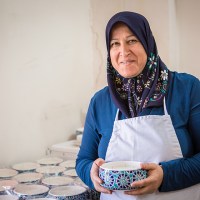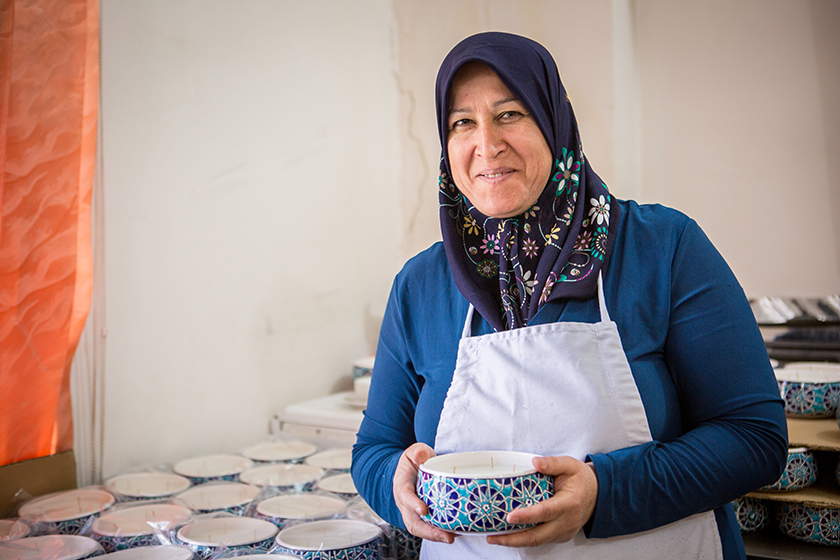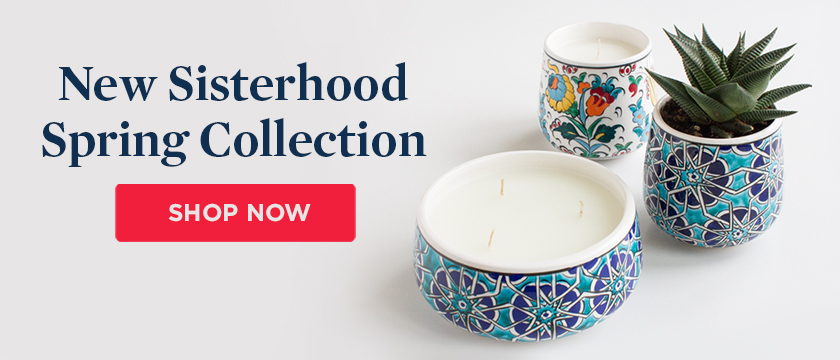“I’d like to show you my work…”
Hiyam was standing quietly beside us, patiently waiting for an opening in the conversation. Her phone at the ready, she quickly swiped through photos, showing us candles that she made at home to sell to neighbors.
She smiled and ducked her head a little in modesty as we “oooed” and “aahed” over her creations, but Hiyam was clearly proud of her work. As she should be.
Hiyam is a talented craftsperson. She is also one of the most steadfast women we know.
“My father didn’t allow me to work. He didn’t allow me to go to college.”
Hiyam explained what it was like for her to be a young woman in Iraq. In her family, it was expected that she would get married, and her husband would take care of her material needs, while she made a good home for their family.
“I didn’t have the chance to work at the beginning of my life, so when I had this opportunity, I ran for it and achieved my dream—making handmade goods. Now I am happy to be a worker, and to have an income!”
Hiyam’s joy at working didn’t come primarily from a desire to rebel against her upbringing—it was pure necessity. Her husband became disabled because of war in 1996—he’s unable to walk. In Iraq, being unable to walk makes it very difficult to work. Their oldest of five children was just six years old at the time. Hiyam’s role in their family changed dramatically.
“I had to work so I could provide for my family.”
Hiyam first started to work as a seamstress at home. Then seven years ago, she got the chance to learn how to make candles with a group of other women who were impacted by war.
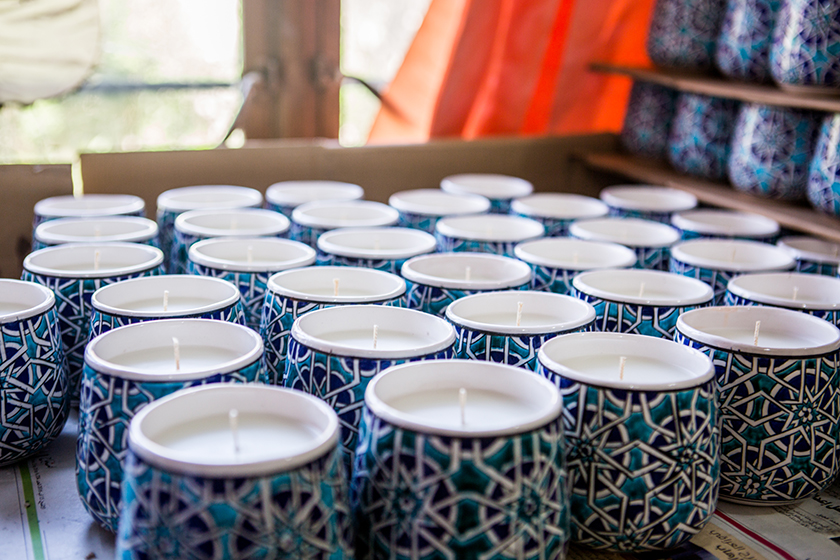
“Iraqis love candles! They light candles on different [special] occasions—it’s a cultural thing. We light candles mostly on religious occasions—it’s a light of blessing.”
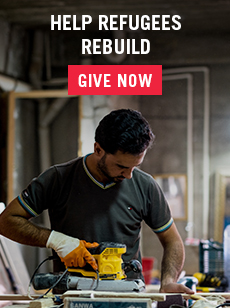
Hiyam started modestly. Good opportunities are few for those who didn’t study further than high school.
“I was just like the other workers at first. I used to take my [candle making] materials home and work there. I could do it at home and take care of my kids at the same time, [working] in a responsible way.”
The more years of experience Hiyam had at making candles, the more her confidence grew.
“I like what I am doing! From the beginning I loved it. I am good at using my hands…not much with paperwork.”
Now Hiyam trains other women who want to learn how to make candles. She supervises their work to ensure the quality of each candle. She finishes the final step in the process, leveling the wax in each vessel with a heat gun to ensure that each candle is perfect. Then she wraps and packs the finished candles, ready to be shipped to her customers—including you!
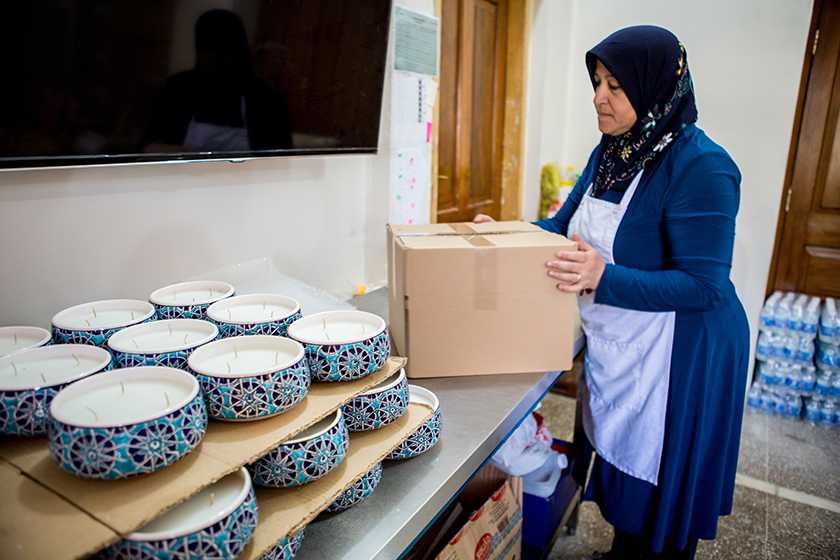
We asked Hiyam how her husband feels about her candles. “He is very proud of me. In 1996 he lost his ability to walk when my oldest was only six years old. She’s in university now! So he is proud of me.”
Each of Hiyam’s five children graduated from high school, went on to college, and now some are married. She raised each child with the ability to choose their future, while helping her husband, keeping their home, and providing an income for her family.
When you unwrap a candle from the Sisterhood Collection, you are holding something that Hiyam carefully finished, inspected, and wrapped. You might even see a few of her fingerprints on the sticky tape. When you hold a Sisterhood Candle, your hands cup the vessel exactly where hers did—you hold the tangible evidence of her work, of her steadfastness and patience.
Every purchase of Sisterhood products supports women like Hiyam who are remaking their world piece by piece. Shop now and invest in the steadfast strength of women in Iraq.

